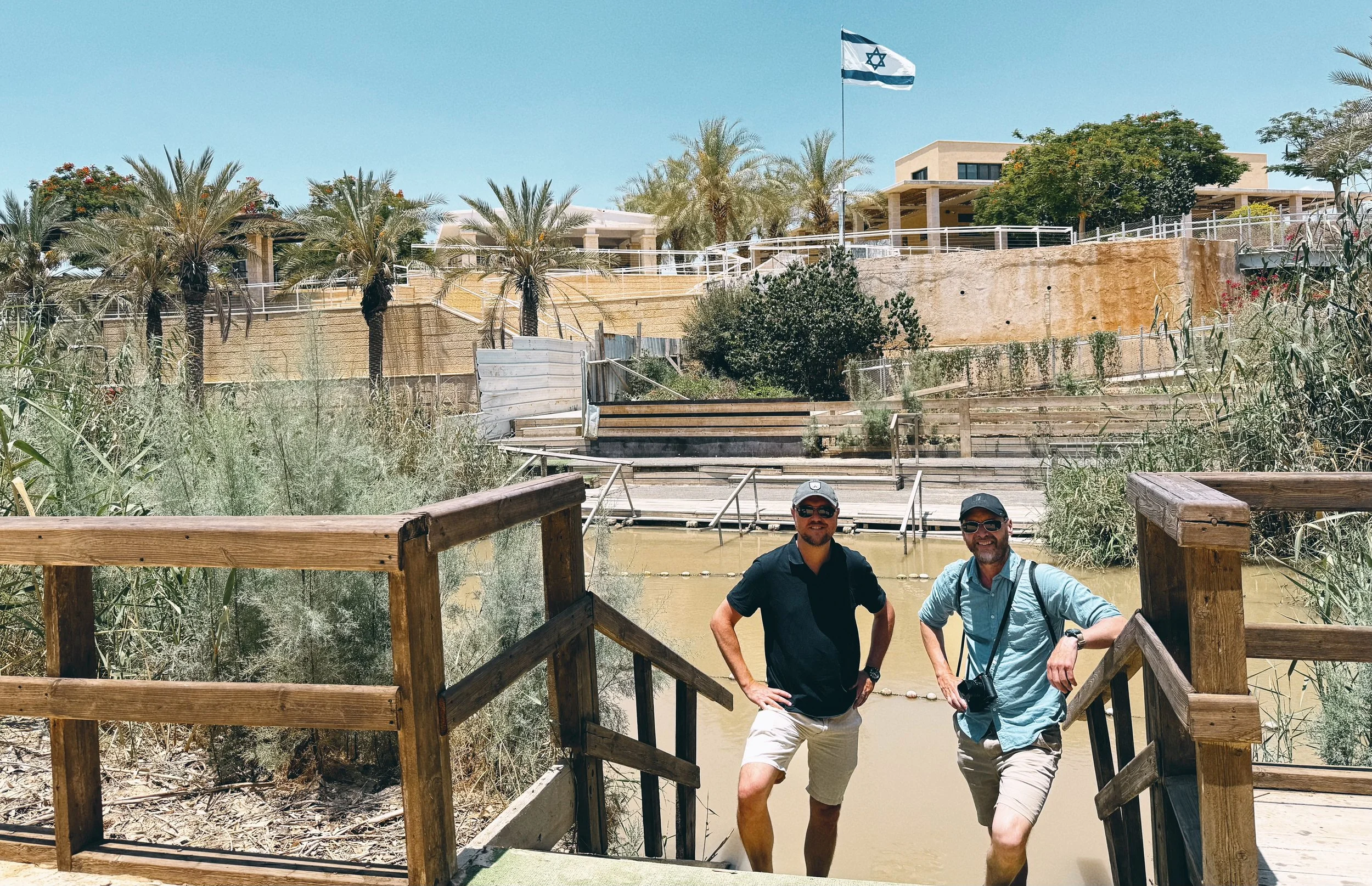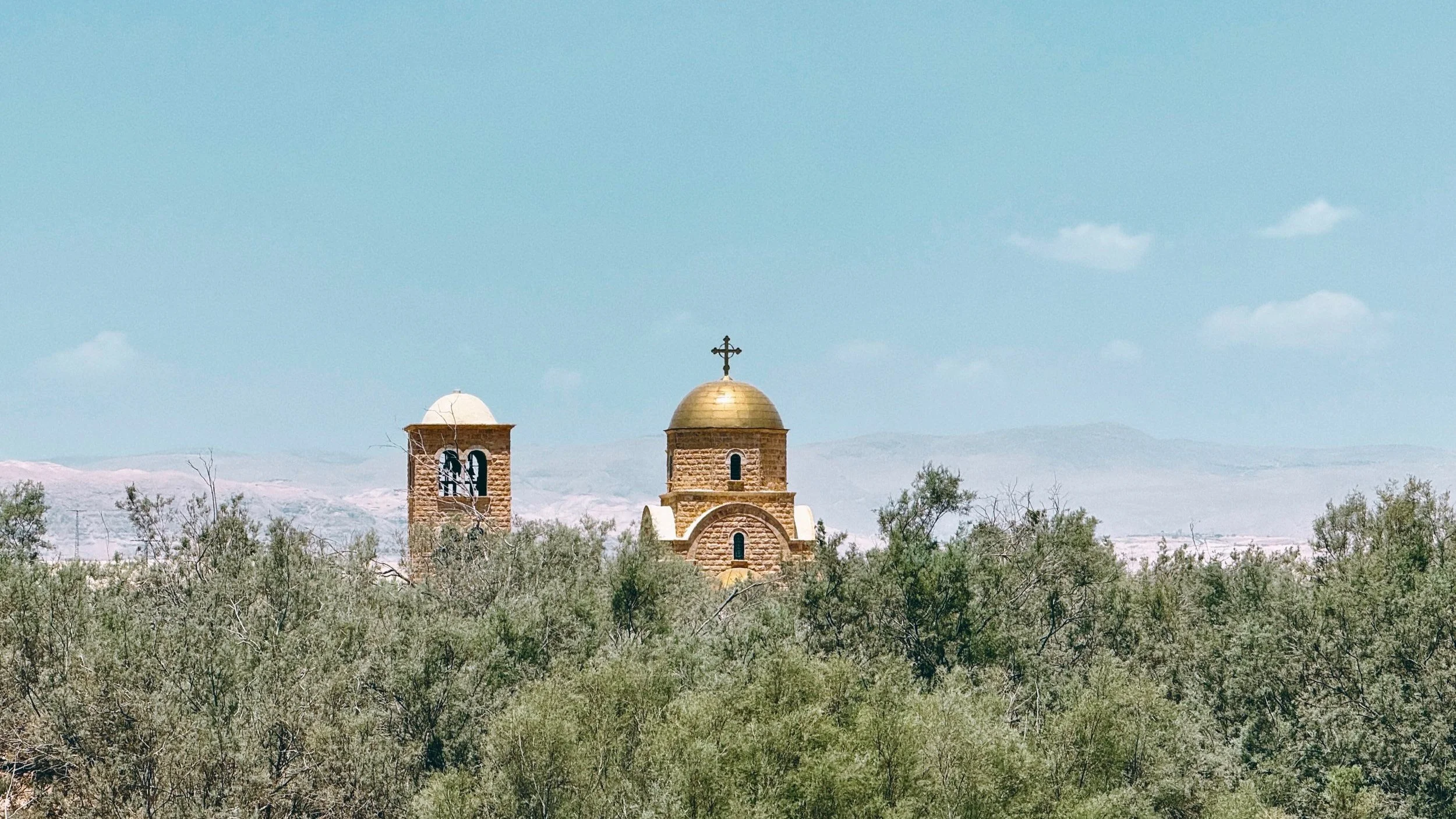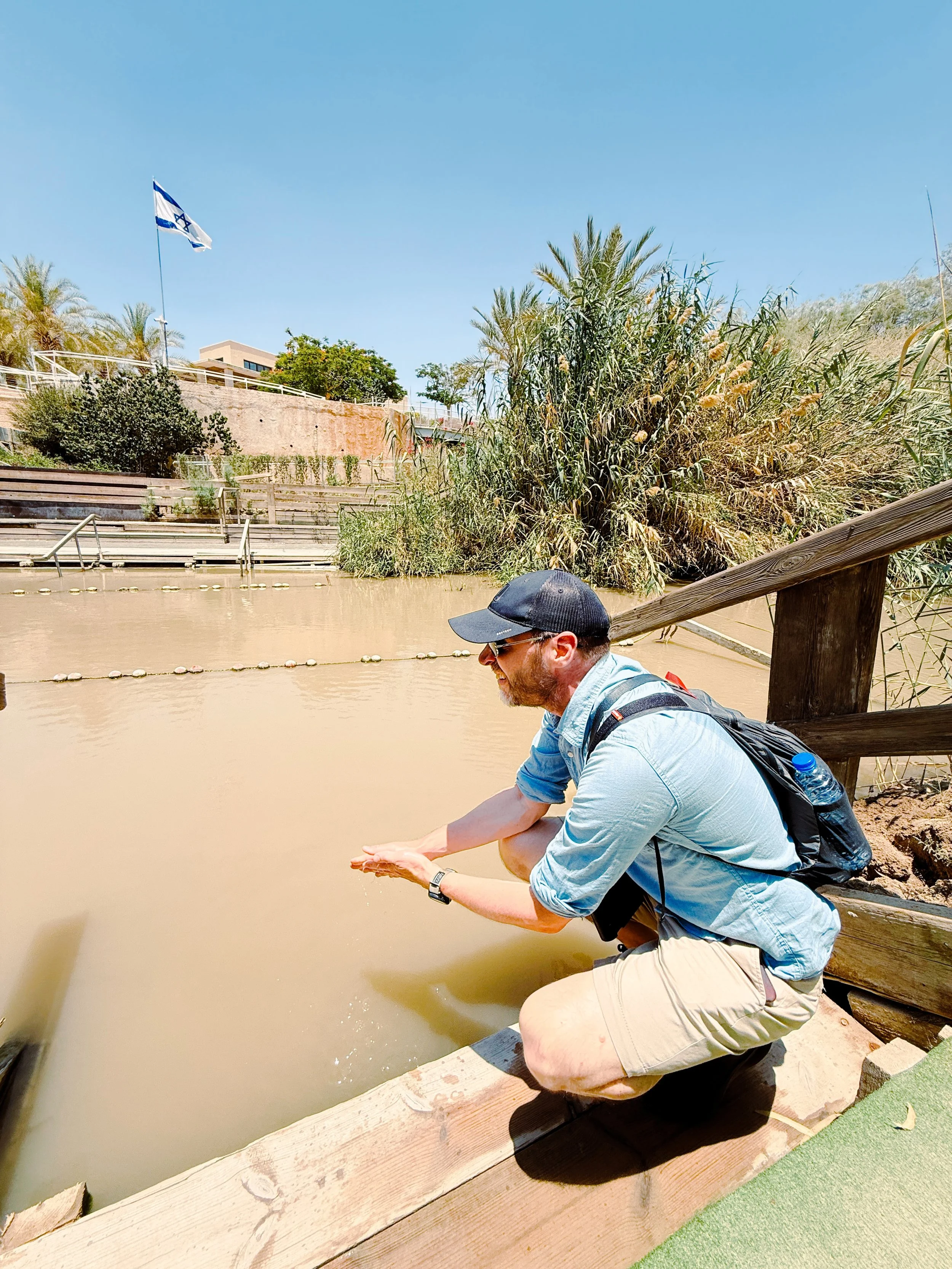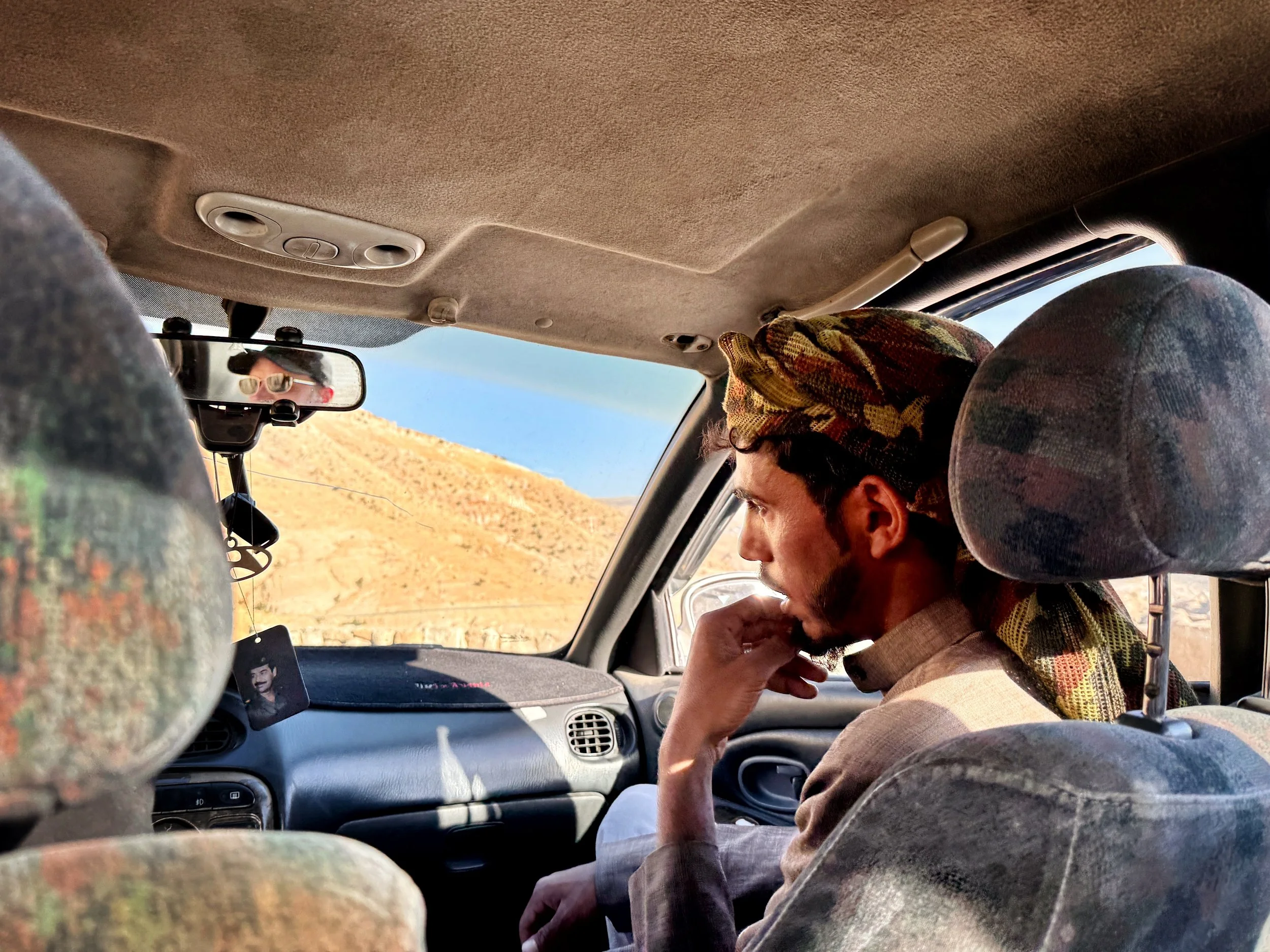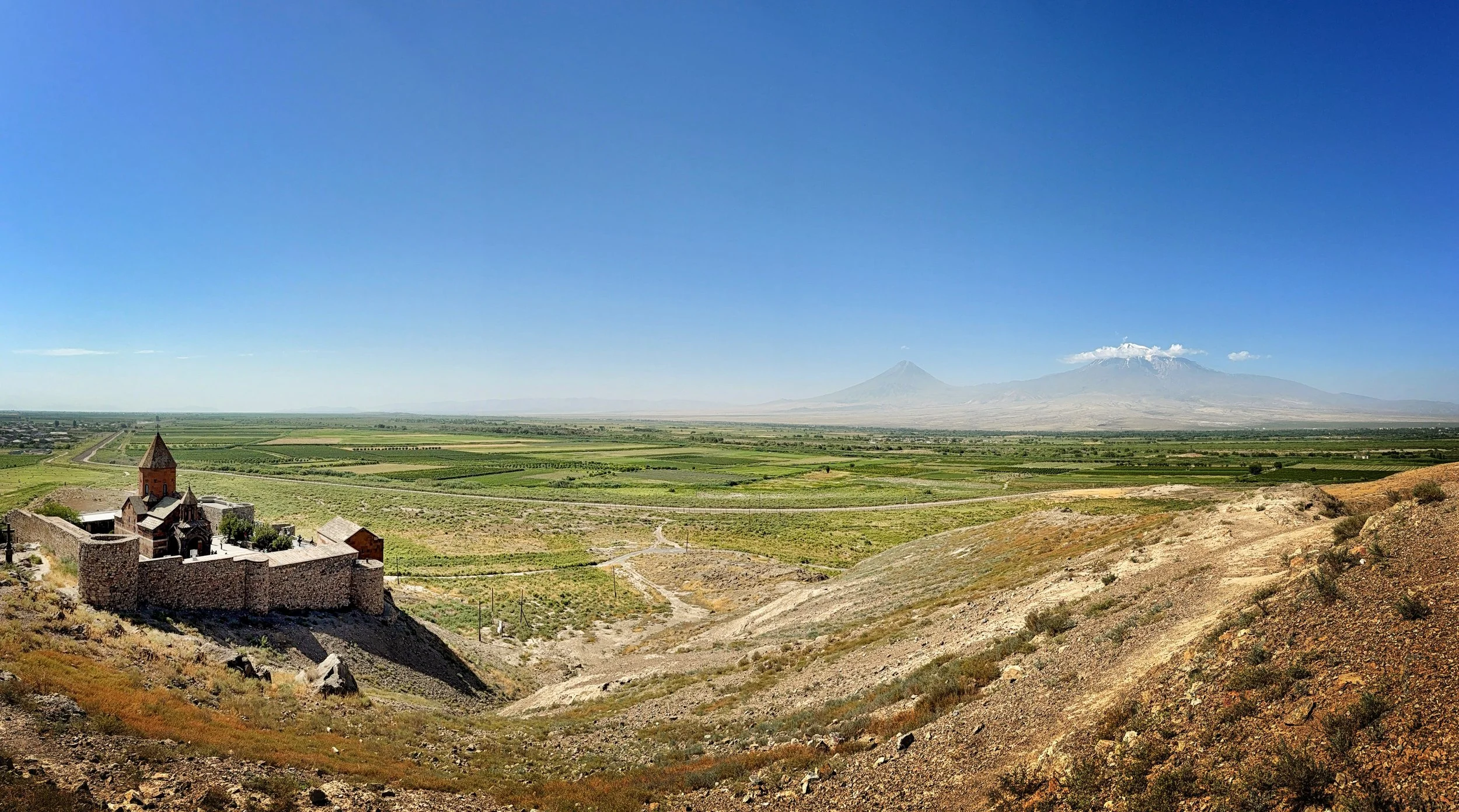New Frontiers
The Threshold of the Unknown
Every generation reaches a threshold—a point where what was once familiar ends and something new begins. In these moments, the well-worn paths disappear, and only faith, courage, and the Holy Spirit can carry us forward. History records that God often meets His people at such crossings, inviting them to leave comfort behind and trust Him in uncharted territory. The edges of the known world have always drawn a certain kind of pioneer: those who sense that spiritual breakthroughs lie on the other side of fear and uncertainty. From ancient wanderers gazing toward a land of promise, to courageous men and women challenging the powers that be, the advance of God’s kingdom has never belonged to the timid or the reluctant. True progress—spiritually and historically—arrives when ordinary people, relying on God, dare to step past the limits of their experience.
This month, as we reflect on our journeys and encounters with the people of Jordan and Armenia, we would like to highlight two courses of faith: the nation of Israel, poised to enter the land they had only dreamed of, and Gregory the Illuminator, whose quiet perseverance turned an entire nation to Christ. Their stories, rooted in actual places and real struggles, remind us that every frontier comes with battles, setbacks, and a summons to resolute hope.
As we stand on the edge of our own new frontiers today, these examples from the past urge us to press onward—trusting that God still leads, even when the road ahead is unfamiliar.
The Edge of Promise: Israel’s Leap into the Unknown
Standing atop Mt. Nebo, the land of promise spread out beneath, we remembered Israel’s defining moment—the threshold between wandering and destiny. For forty years, the Israelites endured hunger, heat, rebellion, and countless tests. On the eastern bank of the Jordan River, Moses’ era ended as he gazed on Canaan from Nebo, entrusting the mantle to Joshua (Deuteronomy 34:1-9). But before battles or triumphs, before the walled cities and miraculous victories, the Israelites faced the Jordan at flood stage: a churning barrier standing between wilderness and inheritance. This was no mere stream to be forded—it was the dividing line between old identity and new calling. God’s command was clear: the priests carrying the ark were to step into the waters first. Only as their feet touched the riverbank did the waters part, heaping up far upstream and creating a dry path where there had been none (Joshua 3:13-17). That first step—before any sign of deliverance—became the act of trust that set the course for everything that followed. The crossing of the Jordan required the people to move forward not because it was safe or certain, but because God’s promise was enough. Twelve stones were taken from the riverbed and raised on Canaan’s shore as a memorial for future generations, a testimony that God makes a way where there is no way (Joshua 4:1-9).
Jordan River — Israel/Jordan Border
Churches at Jordan River
Bedouin Camp
Driving with Bedouin
Conquest and Consequence: Lessons at the Frontier
The campaign for the land was a crucible of faith. At Jericho, obedience was their only weapon—marching in silence, circling the city for days, then raising a shout in unity before God collapsed the walls (Joshua 6:15-20). But triumph was paired with trial: sharp defeat at Ai followed, a result of hidden sin within the community. Each conquest—at Gibeon, where the sun stood still by Joshua’s prayer (Joshua 10:12-14), and against the northern confederacies—demanded steady dependence on God’s Word. Victory arrived in unexpected ways, and setbacks brought hard-earned lessons.
The Promised Land was possessed by those who moved forward despite fear, learned from their failings, and trusted God’s Word—even when the outcome looked impossible. The Jordan crossing stands as a living reminder that the frontiers God sets before us always demand faith beyond the familiar—requiring we get our feet wet with trust before we see the water part.
Armenia’s Miracle: Gregory the Illuminator and the Making of a Christian Nation
In the valleys and fortresses of Armenia, Gregory the Illuminator, whose courage opened a new chapter in Church history, still echoes through time. The son of a noble, Gregory endured years of imprisonment in Khor Virap for refusing to abandon his Christian faith or submit to King Tiridates III’s pagan demands. Yet it was precisely from this dungeon that Gregory’s influence would radiate—the power of steadfast witness even in suffering. According to tradition, when King Tiridates was afflicted by madness, no healer could help him until Gregory was released to pray. The king’s healing and conversion became the spark that lit an entire nation. In 301 AD, Armenia officially declared Christianity its state religion—decades before Rome’s conversion—making it the world’s first Christian nation. Gregory’s perseverance in chains led to the baptism of the king and mass conversions, and soon Armenia was building churches, developing Christian learning, and exporting the faith to neighboring peoples. Gregory breached not just a physical prison, but the boundaries of cultural tradition and fear. His story is proof that new frontiers are sometimes within the heart: a willingness to suffer, to stand firm against opposition, and to allow God’s light to transform an entire nation.
Khor Virap, site of Gregory’s imprisonment. Mt Ararat pictured in the background — Armenia
(Click Below to play a classical piece inspired by the prayer of Saint Gregory)
The New Frontier Before Us
Today, we all stand on the edge of new frontiers. Across the world, the Church faces mounting resistance and persecution—yet, as always, pressure is the trial that refines faith. Like Israel facing the unknown, and Gregory confronting hopeless odds, we are called to cross borders both seen and unseen: hardened hearts, unreached nations, and technological landscapes that shape tomorrow’s mission fields.
The need for laborers has never been greater. The frontier belongs to those willing to leave the comfort zone, to risk life and limb, to trust that God still goes before us. In every age, He calls for the bold, the strong in heart, and the willing—the ones who choose to leave their world behind in pursuit of something greater. May we answer with the same tenacity, hope, and resolve as those who have gone before, and may the stories of ancient frontiers inspire the next generation to step into the new.
In Him,
Tim and Will


